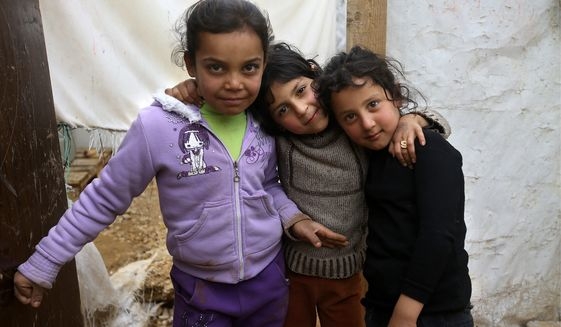
05 Dec 2014
Wealthy nations that pledged hundreds of millions of dollars in humanitarian aid to refugees of Syria’s civil war haven’t come through with the money, according to data compiled by the top U.N. agency tracking the funds. The situation has triggered an unusually tense round of international finger-pointing since Monday, when the U.N. World Food Programme announced that unfulfilled donor commitments were to blame for the organization’s sudden suspension of a critical voucher program serving more than 1.7 million people across the Middle East who were displaced by the crisis. Officials with the program have so far refused to pin a $64 million funding shortage on any individual nation and claim the deficit is best explained by a failure of many governments to come through on promises for a broad humanitarian response to the Syria crisis. But a close examination of data compiled by the U.N. Office for the Coordination of Humanitarian Affairs shows some countries are guiltier than others. While many have lived up to aid promises — including the United States, which, at $3 billion, has funded nearly half the total humanitarian response — several are delinquent, with Kuwait, the United Kingdom, the Netherlands and Saudi Arabia leading the charge. According to OCHA documents published this week, those four nations have collectively come up some $335 million short of what they’ve promised at international conferences on Syria since the civil war began more than three years ago. Separately, the European Union has delivered $97 million less than what its officials have pledged. The four nations and the EU have collectively delivered well over $1 billion in Syrian humanitarian aid, spread across the World Food Programme and other U.N. agencies, including the U.N. Refugee Agency and UNESCO. But the massive deficit caused by the failure of those countries — and several others — to deliver on promised aid has left key programs in what one official described as a “hand-to-mouth” funding crisis that spilled into the open this week with the suspension of the voucher project. Cutting the program, which provides Syrian refugee families in Jordan, Lebanon, Turkey, Iraq and Egypt with debit card-like electronic vouchers to buy food in local shops, means “many families will go hungry,” the WFP said in a statement Monday. The development is the most significant and highly publicized cutback by a U.N. aid operation in recent memory, and it represents the latest manifestation of the world’s failure to deal with the massive human catastrophe spilling out of Syria’s civil war. The situation is particularly troublesome for Lebanon, which hosts more than 1.1 million Syrian refugees, a number that corresponds to a quarter of the country’s population. News of the voucher suspension began reaching those refugees Tuesday. Khaldiyeh Abbas, 42, who has been living in Lebanon for more than three years after fleeing Syria with her 55-year-old husband and six children, ages 6 to 20, told The Associated Press that she and her family “rely on the vouchers to make ends meet.” The WFP says the voucher project has injected some $800 million into the economies of refugee-hosting countries that border Syria. But Monday’s statement provided no details on the project’s total budget, saying only that WFP requires $64 million in immediate funding to keep the project going through December. WFP officials contacted by The Washington Times were not forthcoming about how the project is specifically funded and resisted suggestions that the cutback announcement was designed to shame wealthy nations into coming through on promised aid. “We don’t want to start the blame game for this,” said Abeer Etefa, a WFP spokeswoman at the agency’s headquarters in Rome. “It is very difficult for us to go through this country by country and then name and shame,” said Mrs. Etefa said, who added that individual nations have “pledged aid to the overall humanitarian effort, but not to any specific project.”

 عربي
عربي